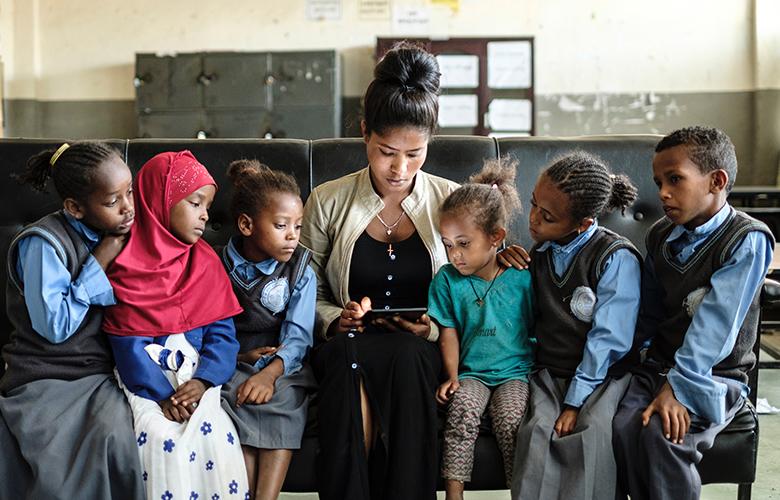
With schools closed due to the COVID-19 pandemic, approximately 9 out of 10 children globally are currently out of school. Although efforts are underway by parents, communities, and governments to enable education to continue outside formal classrooms, in many nations, the challenge is that children need books.
As we celebrate International Book and Copyright Day on April 23, we reflect on the fact that many families lack the appropriate materials for their children to continue learning at home. This situation is exacerbated in countries where materials written in mother tongue languages are limited, further reducing the opportunity for children to learn to read.
To address global book shortages, the Global Book Alliance (GBA) was formed in 2018 by a variety of partners including donors, multilateral and UN agencies, and NGOs. The GBA is working to ensure that students have sufficient high-quality reading materials. Implemented by EDC, USAID’s Global Book Alliance in Action project (GBAIA) supports the GBA. It works with governments, publishers, and donors to analyze supply chain issues and find innovative ways to support the provision of books in a wide range of languages to help children continue reading.
During the COVID-19 pandemic, GBA joined the Translate a Story collaboration in its “book sprint” event. The sprint started on April 8 and engages volunteers to translate open educational reading materials from English into other languages, with a focus on underserved languages. As of April 22, over 845 books have been translated and readied for quality assurance checking. They will then be available on participating platforms (Global Digital Library, StoryWeaver, Let’s Read and African Storybook). All of these platforms have seen a gigantic increase in use since the start of the COVID-19 pandemic, indicating they are accessible to young people.
Because the materials are free of copyright restrictions, users are able to adapt them, both in terms of language translation and the storyline and illustrations. This flexibility allows further contextualization to a specific country or community context. The translated books, and any adaptations, can also be downloaded for use offline or for printing.
We know that digital books are not the solution to the learning needs of all children as many children lack sufficient access to the necessary technology. However the development of additional materials in underserved languages builds the pool of resources available for the needs of children during the current COVID-19 crisis as well as for use after the crisis passes.
If you are interested in becoming involved in the book sprint, visit Translate a Story. And please share your experience with us.
| Simon James is an international development practitioner who has worked on a variety of formal and nonformal education projects. He is currently the chief of party of the GBAIA project. |

Add new comment